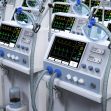Philips has agreed to a settlement exceeding $1 billion to resolve lawsuits involving thousands of individuals who allege they were harmed by the company’s breathing machines. These devices, used for sleep apnea and ventilation, were found to potentially release toxic particles and fumes, posing severe health risks to users.
The settlement, which will be filed in federal court in Pittsburgh, aims to conclude over 700 lawsuits triggered by the 2021 recall of millions of Philips’ sleep apnea devices and ventilators. This litigation involves more than 50,000 individuals, though the exact number who will qualify under the settlement's terms remains to be determined.
The controversy centers on an industrial foam used inside the machines, which can degrade and potentially release dangerous particles directly into the user's airway. Philips initiated a recall after identifying that the degrading foam could expose users to carcinogenic materials. Despite this, subsequent testing by Philips suggested that the health risks might not be as severe as initially feared, a point contested by further independent investigations and federal inquiries.
In addition to the billion-dollar settlement, Philips has committed $25 million to medical monitoring of users who fear long-term health consequences from exposure to toxic chemicals. This settlement comes on top of a previous agreement in which Philips consented to pay over $479 million—now expected to exceed $600 million—to compensate customers for the defective machines.
The U.S. Food and Drug Administration (FDA), which has been criticized for its initial response to the safety concerns, defended its actions, stating it moved quickly once the risks became apparent. The situation has also prompted the Government Accountability Office to investigate the FDA’s oversight of medical device recalls, marking the agency's first such review in years.
In response to growing concerns about the safety of medical devices, particularly those highlighted by the 2021 recall of Philips breathing machines, U.S. Senators Dick Durbin (D-Ill.) and Richard Blumenthal (D-Conn.) have called for a thorough investigation by the Government Accountability Office (GAO) into the Food and Drug Administration’s (FDA) practices concerning medical device oversight and recalls. This call to action stems from alarming reports suggesting significant lapses in the FDA's response to known issues with devices that potentially endangered millions of patients globally.
Investigative reports by ProPublica and the Pittsburgh Post-Gazette shed light on the FDA’s delayed response to numerous complaints regarding Philips Respironics’ breathing machines. These reports revealed that the FDA had received hundreds of complaints about the devices well before Philips issued a major recall in 2021. The complaints detailed issues where an industrial foam used in the machines could degrade, potentially releasing toxic and carcinogenic particles directly into the user's air supply. Despite these early warnings, there was no immediate action from the FDA to alert the public or healthcare providers.
Philips claimed to have assessed the early complaints on a case-by-case basis but only initiated a recall after acknowledging the severity of the risks posed by the foam degradation. This delayed response has drawn criticism and raised questions about the effectiveness of the company's internal safety protocols and its transparency with regulatory bodies.
Senators Durbin and Blumenthal, disturbed by the findings and the apparent regulatory oversight failure, have emphasized the need for robust oversight of medical device manufacturers. Their request for a GAO investigation aims to uncover the depth of the FDA's oversight issues and ensure that such failures are addressed promptly. The GAO has agreed to undertake this investigation, marking a significant step towards potentially overhauling how the FDA handles medical device recalls.
This is not the first time the FDA's oversight capabilities have been called into question. A similar GAO investigation in 2011 resulted in recommendations for changes to enhance patient safety, highlighting ongoing challenges in regulatory practices over the years. The recent surge in malfunctioning device reports — with 3 million incidents reported in 2022, a dramatic increase from 2005 — underscores the urgency for updated and more effective regulatory measures.
Philips maintains that it is cooperating fully with ongoing criminal probes by the U.S. Department of Justice and other investigations. The company’s CEO, Roy Jakobs, stated that the settlement provides Philips a path forward for "sustainable value creation," focusing on rectifying past oversights and enhancing product safety standards.






